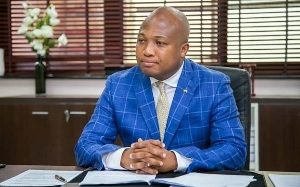The presumption of innocence which is grounded in Article 19(2)(c) of the 1992 Constitution of the Republic Of Ghana is applicable in matters of criminal contempt.
In fact the entire provisions under article 19 of the constitution of Ghana is regarded as a Bill of Right which cannot be derogated and must be respected at all times.
Presumption of Innocence which is a rebuttable presumption in criminal trials means that," You may have seen the person engaged in an act considered as criminal but until he pleads guilty before an impartial tribunal or unless a tribunal finds him guilty of what he is alleged to have done, he is innocent in the eyes of the law.
With respect to Article 19(2)(c) of the constitution of the Republic of Ghana, any summon on the authority of the Chief Justice that invites a person to appear before a judge to show cause( ie to explain why (s)he should not be punished for contempt of court) constitutes a serious violation on the back of the presumption of innocence.
Readers would recall that, On September 9th 2020, Justice Amos Wuntah Wuni of the high court issued a summon which invited Hon.Kennedy Ohene Agyapong to appear before him. For the benefit of education, let me reproduce the content of the said order below.
The order reads and I quote" I hereby summon the said Kennedy Ohene Agyapong per warrant issued under my hand and seal to appear before the high court (Land Court 12) on monday, September 14,2020 at 10:00 to show cause why he should not be severely punished for contempt if the matters are proven against him to the satisfaction of the court"
It is important for admirers of Rule of Law to pay attention to the wording of the said order which is the invitation extended to Kennedy Agyapong. The lacuna in the order is the condition which was attached to the order. Logically, any time the word" if " is used in any sentence, it introduces a conditional clause.
On the face of the order, what is so clear is that, the judge in an attempt to exercise the power to commit for contempt which is exercised almost arbitrary ended up given AK47 to Hon.Kennedy Ohene Agyapong to shoot down the order through certiorari application which is exactly what his competent team of lawyers have done.
There is a clear error apparent on the face of the order and it is in view of the fact that, in one breadth, the judge says" come and show cause " and in another, the judge also says" If the matters proven against you touches my satisfaction, you are going to be punished and that is going to be severely."
The question, who is the party to prove the matters against Kennedy Ohene Agyapong? Is it the same judge whose duty is to press the button upon satisfaction of the matters proved ?
The answer to the question above simply means that, the judge is the prosecutor in this matter. This posture or position of the judge constitutes a patent breach of the principles of fair trial.
In Justice Amos Wuntah Wuni's court, a court clerk can even prepare a charge sheet and same could provide the foundations or basis for some ones prosecution. What is so interesting is that, when lawyers for Hon.Kennedy Agyapong requested for their client's charge sheet, the presiding judge ordered the clerk to prepare some for the defence team.
How can some one who doesn't exercise prosecutorial powers be in the position to prepare charge sheets? Is this not a dangerous precedent the court is setting? The funny thing is that, even the charge sheet prepared prepared by the said clerk was not even signed when it was given to the defence team.
If a decision made correctly could be quashed for breach of natural justice as stated in the popular opinion of Bamford Addo JSC as she then was in Republic v Committee of inquiry into Nungua Traditional Affairs[ Ex parte Odai Iv & Others then what about a decision arising out of determination of a court which violate peoples fundamental Human Right constitutionally guaranteed?
Opinions of Friday, 2 October 2020
Columnist: Dawda Eric



















